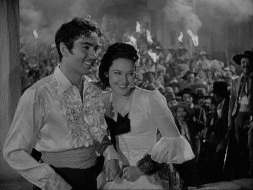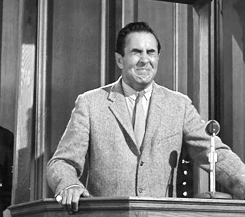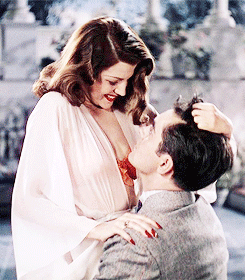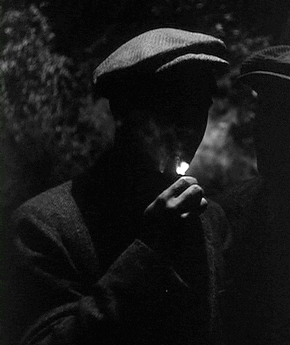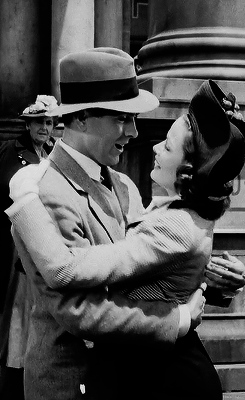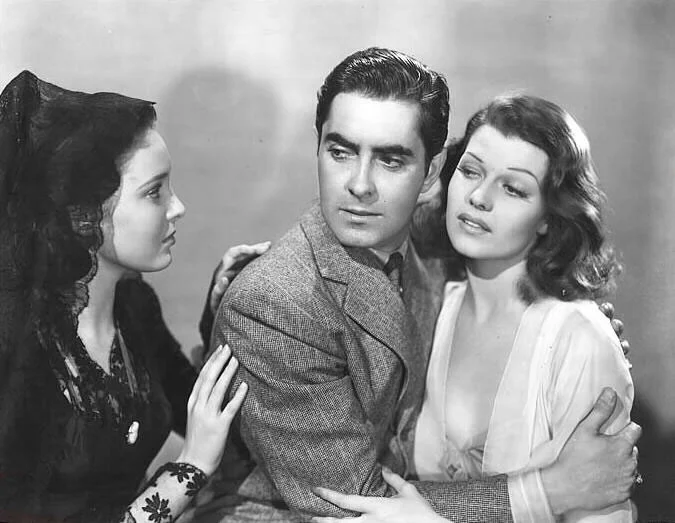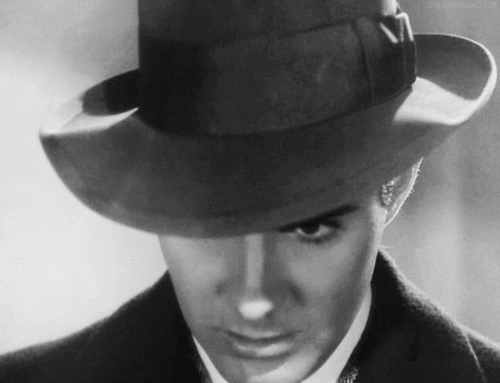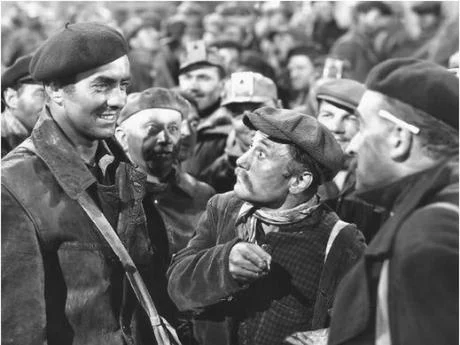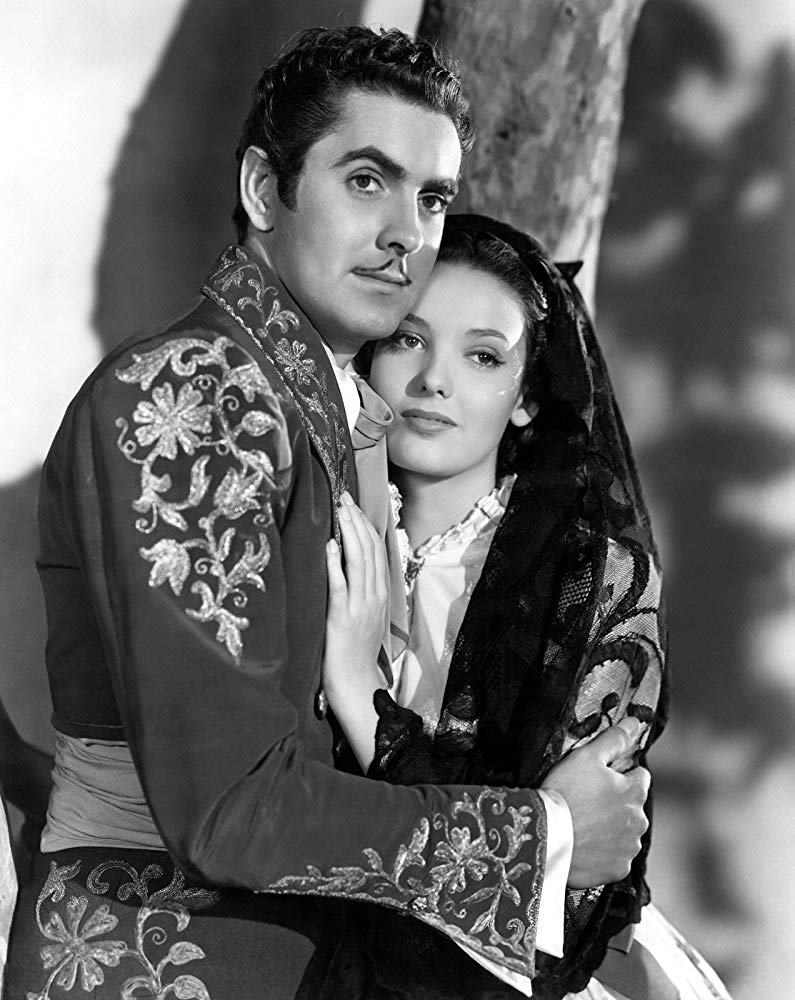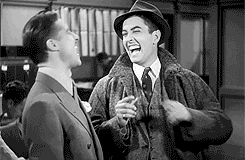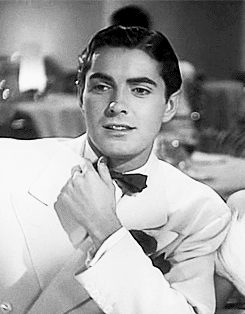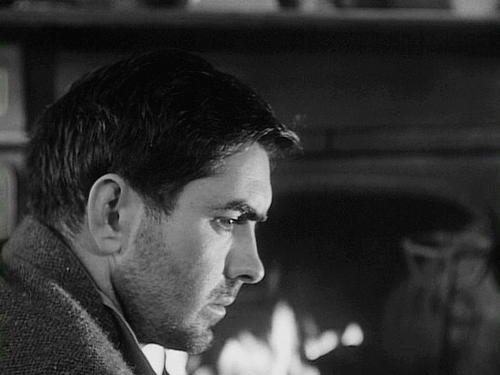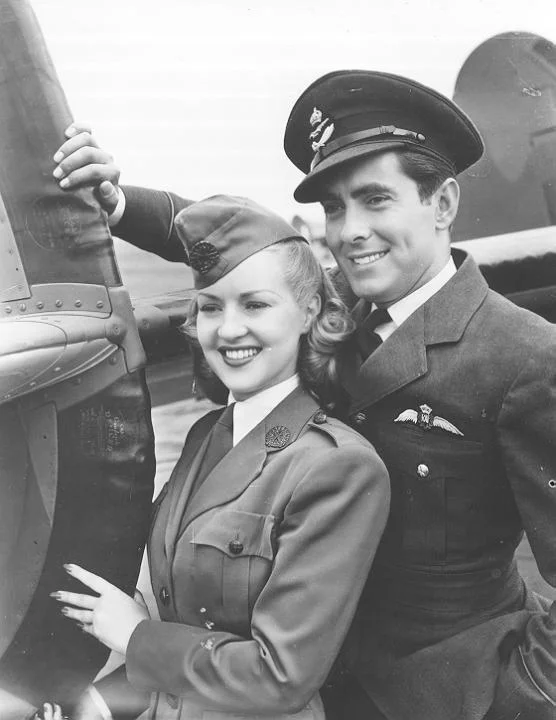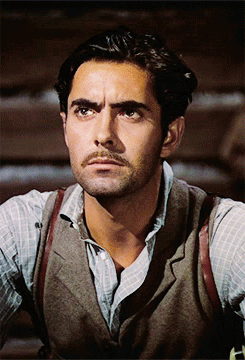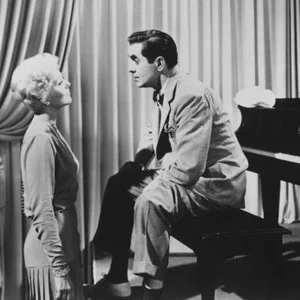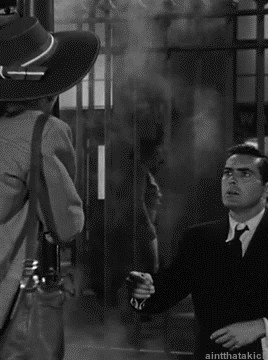Tyrone Power
It's really no surprise that Tyrone Power had the opportunity for stardom. After all, he came from a long family line of noteworthy actors. Few people, though, became the star that Tyrone Power did. He got his first credited bit part in Tom Brown of Culver (1932) and went on to do a mixture of theater and film before he secured his first leading role in The Lloyds of London (1936). Despite receiving fourth billing, there was no doubt that Power was the star of the film, and audiences wholeheartedly agreed. The film's release made Power a movie star overnight. Now, as one of Fox's fastest-growing stars, Power was quickly cast in swashbucklers, dramas, and even musicals. Among them, Jesse James (1939), Love is News (1937), and Rose of Washington Square (1939).
The start of the next decade proved to be one of the peaks of Power's career. With iconic performances, particularly as the masked hero in The Mark of Zorro (1940), Power was solidified as one of the silver screen's matinee idols and "King of the Box Office." The only thing that interrupted this fast and continued ascent was his service in the Marines when the war broke out. During his time in the service, Power went from Private to Captain. Even after the war, he continued in the reserves and would ascend to the rank of Major.
After the war, Power continued to have success, but he was tired of constantly being cast in costume dramas. He wanted to challenge himself in "true" acting parts that were both different and noteworthy. Fox gave him a few opportunities, such as in The Razor's Edge (1946) as a man with unconventional ideas who is searching for inner peace. In Nightmare Alley (1947) he gave a brilliant performance as a con man willing to do anything and hurt anyone to get what he wants. Despite rave reviews that claimed that he had "stepped into a new class," his studio thwarted the success of the film. They were afraid that Power as a less than likable character would turn away audiences. As a result, Power's exploration of more serious roles at Fox came to an end.
Power decided to take his career into his own hands and work as a freelancer starting in the early 1950's. He began by returning to the theater with hits such as Mr. Roberts, which were met with great success and acclaim. He continued to star in films, including The Long Gray Line (1955) and Witness for the Prosecution (1957). We never had the opportunity to see Power movie into his career's second act. While on the set of Solomon and Sheba, Power died, just like his father before him, while filming.
As one of Hollywood's most charismatic stars, Power encapsulated what it meant to be a leading man and a wonderful actor. For Fox, he was irreplaceable. When Power was away serving in the Marines, the studio began grooming several leading men, all of who single-handedly or put together were unable to fill his shoes. Thanks to his "unmatched versatility," and his believability that left no room for pretense, few leading men have ever had a more prolific career or screen presence.*
*Lewis, Judy. Interview for Tyrone Power: Prince of Fox Featurette, 2008.
Core Films
*= my personal favorites
The Black Swan (1942)*
The Mark of Zorro (1940)*
Son of Fury (1942)
Blood and Sand (1941)
The Razor’s Edge (1946)
Nightmare Alley (1947)*
The Long Gray Line (1955)
Witness for the Prosecution (1957)*
For More
Books
Biography; Tyrone Power: The Last Idol by Lawrence Guiles: https://www.amazon.com/Tyrone-Power-Lawrence-Hollywood-Collection/dp/1684424690/ref=tmm_pap_swatch_0?_encoding=UTF8&qid=&sr=
Filmography and Biography; The Films of Tyrone Power by Dennis Belafonte with Alvin H. Marill: https://www.amazon.com/Films-Tyrone-Power-Dennis-Belafonte/dp/0806504773/ref=tmm_hrd_swatch_0?_encoding=UTF8&qid=&sr=



